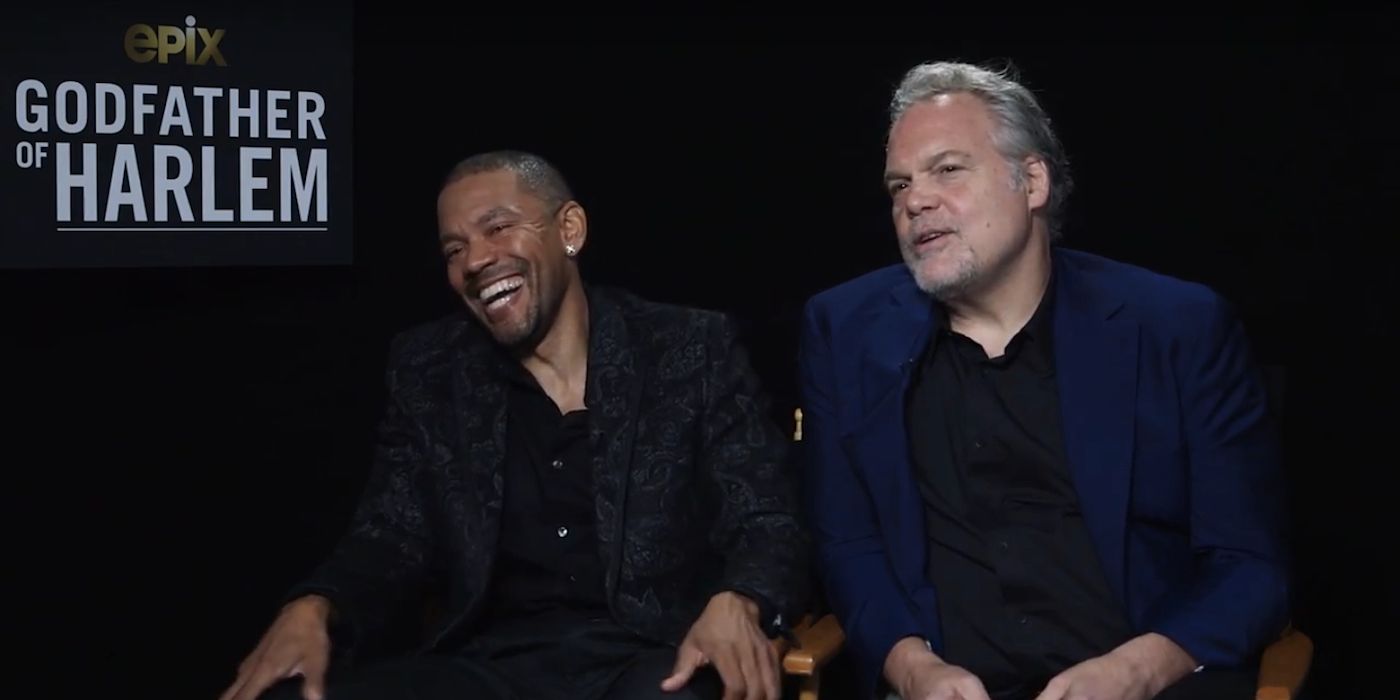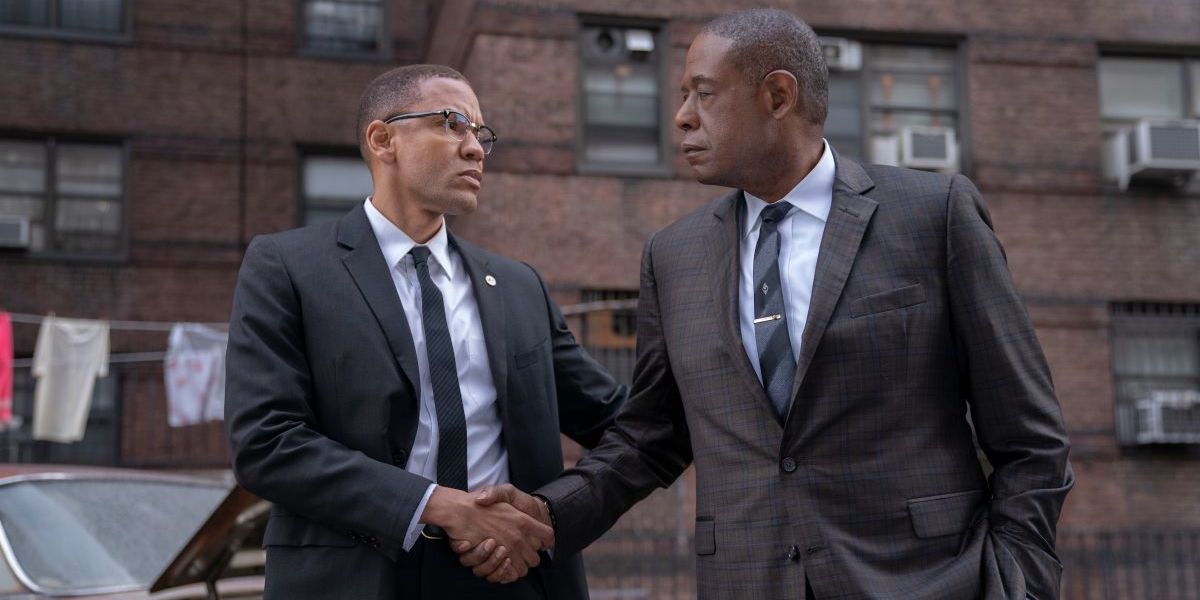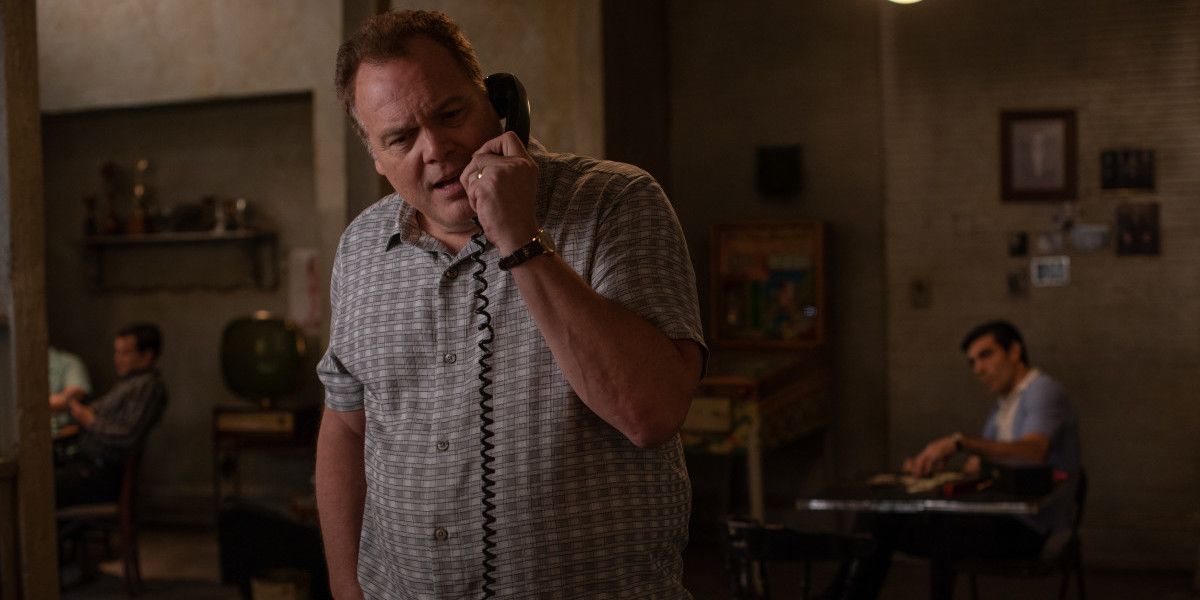The new EPIX original series, Godfather of Harlem, examines the cultural upheaval of the early 1960s through the lens of the life and times of some of the most controversial real life gangsters of the era. Forest Whitaker stars as the notorious Bumpy Johnson, who returns from prison to find Harlem completely overtaken by the Italian mob, led by Vincent "The Chin" Gigante, played by Vincent D'Onofrio. In his quest to reclaim his city, Johnson finds himself working alongside Malcolm X, played by Nigél Thatch.
At a press junket for the series, Screen Rant sat down with Vincent D'Onofrio and Nigél Thatch, who discussed their work on the series, such as the massive responsibility of playing real life historical figures, as well as being influenced – and sometimes not influenced – by the tumultuous era of the early 1960s.
1963. Harlem. New York City. I know you were just a little boy at that time, but is there anything that you tapped into from your youth living in New York that helped with this character?
Vincent D'Onofrio: Oh yeah, just the whole Italian-American vibe. You know, that's very much my relatives and the neighborhoods that I spent time in. And then, you know, also knowing guys older than me from back in that period, spending a lot of time with people like that over the years through my life. Yeah, I mean, there's so much to connect to.
And Nigél, I believe you're a little bit younger, but...
Vincent D'Onofrio: 19, right? 19?
Something like that!
Nigél Thatch: Can't you tell? (Laughs)
Were there people in your family you could talk you, or people who you knew who were there and lived through this New York experience, in a city that doesn't exist anymore?
Nigél Thatch: No, no one that I knew, no one from my family were from New York. I've been getting a history lesson about New York as I've been doing this show. Not only New York, but specifically Harlem, Harlem in the 60s. I've learned a lot throughout shooting this show. It's been an amazing experience. It's been an eye-opener. I mean, Bumpy Johnson was also something else, someone else who I've learned a lot about. I had no real knowledge about Bumpy Johnson, definitely didn't have a lot of knowledge about the relationship between Bumpy Johnson and Malcolm X. I don't think most people did. So that's another eye opener. Yeah, it's been quite interesting.
Can you talk a little bit about maybe some of the things you learned about the culture, or the pop culture of the era? Maybe something you were too young to understand at the time, but are getting a new reflection on working on this show?
Vincent D'Onofrio: The pop culture?
Yeah, the music, the TV, anything from this era, not even necessarily specific to New York, even, but that wound up informing your performance, perhaps?
Vincent D'Onofrio: (To Nigél) Maybe you did. I mean, my character doesn't really spend a lot of time in the culture.
Nigél Thatch: You don't know nothing about the pop culture?
Vincent D'Onofrio: No.
Nigél Thatch: (Laughs)
Vincent D'Onofrio: No, there is no culture in my character.
Nigél Thatch: I mean, pop culture, I don't know, man. But I mean, I'm there, on Godfather of Harlem, to embody as much as I can with Malcolm X. Malcolm X, really, I don't think he gave a damn about pop culture, you know what I mean? There were larger things at stake, you know? As far as that was concerned. So that's pretty much where my mind is when I'm at work. I think that's where Malcolm's mind was when he was at work.
For both of your characters, when you're building these characters who are based on real people, do you always have that as the litmus test of, like, if it's not true to who this person really was, even if it might add to your performance, do you say, "No, this would be unrealistic," and you pull back? What's that approach?
Vincent D'Onofrio: I don't go near it. If it's not going to influence me in the correct way to help service the story, then I don't go near it.
Nigél Thatch: It's not even a choice to make.
Vincent D'Onofrio: Right.
Nigél Thatch: You know what I mean? It wouldn't be wise to just branch off and start doing things that Malcolm wouldn't do, or saying things that he wouldn't say, or being a way that he wouldn't be.
Vincent D'Onofrio: And you realize it all the time. A lot of times, on sets, people try to bring in... Like, the art department, or this department, or that department, might try to bring in things and you're like, "Woah, that''s not... That doesn't work." And you just cut it off. That's not gonna help. The cool thing about what we do for a living is that it's a collaborative business and a collaborative... You're always in this collaborative setting. You figure things out on the way and so a lot of times, you're saying, "No, no, no, that doesn't help me at all. Let's not go near there."



